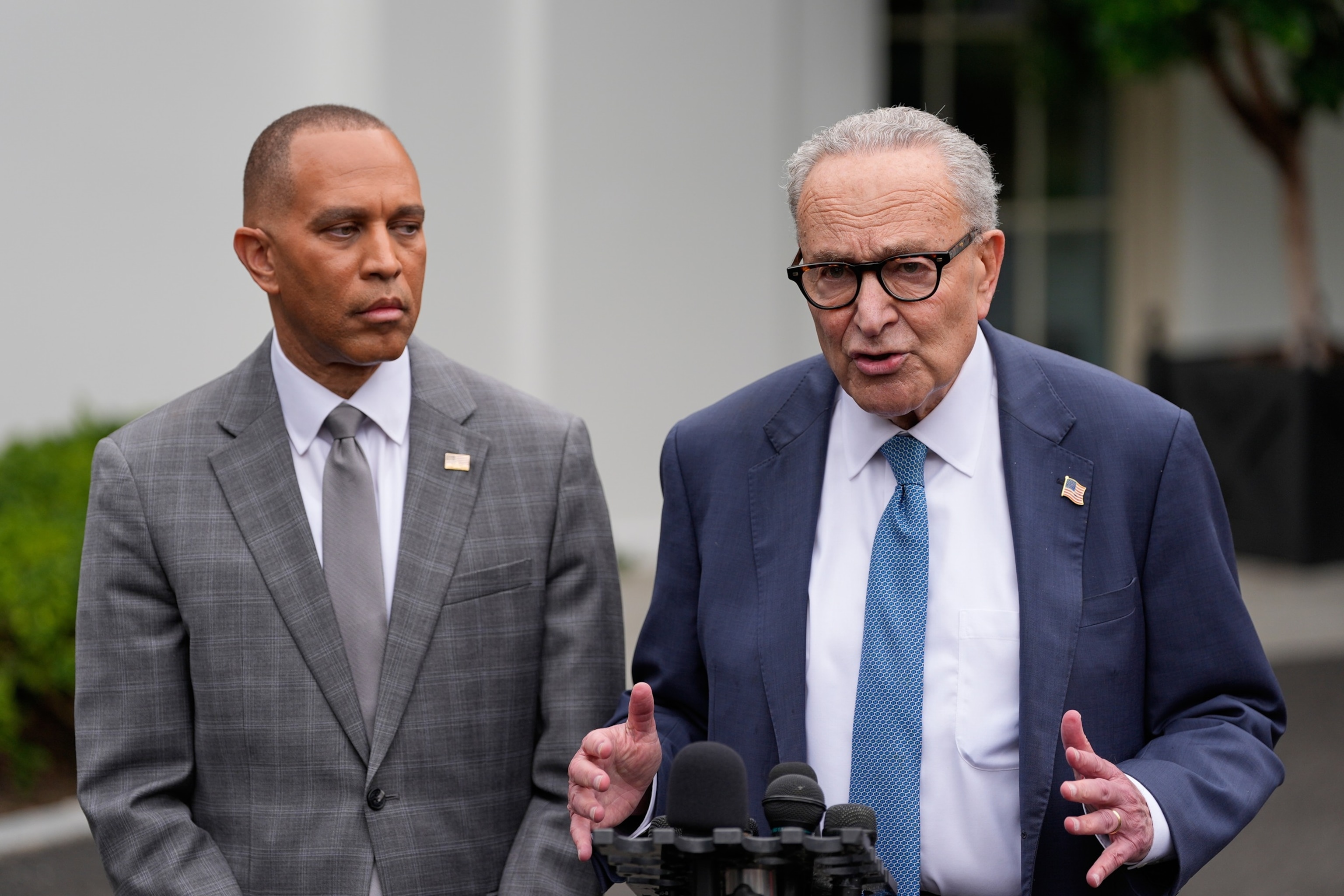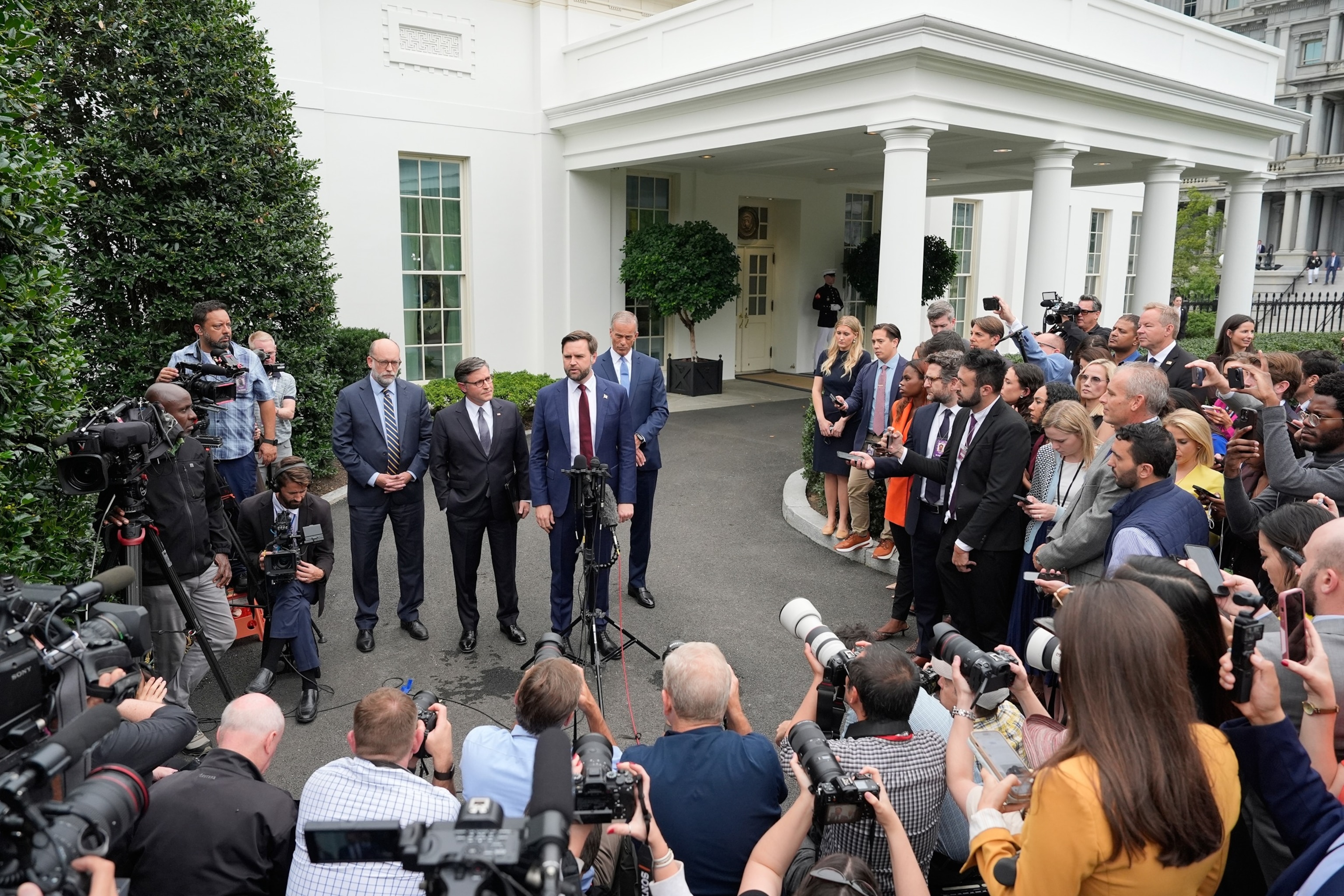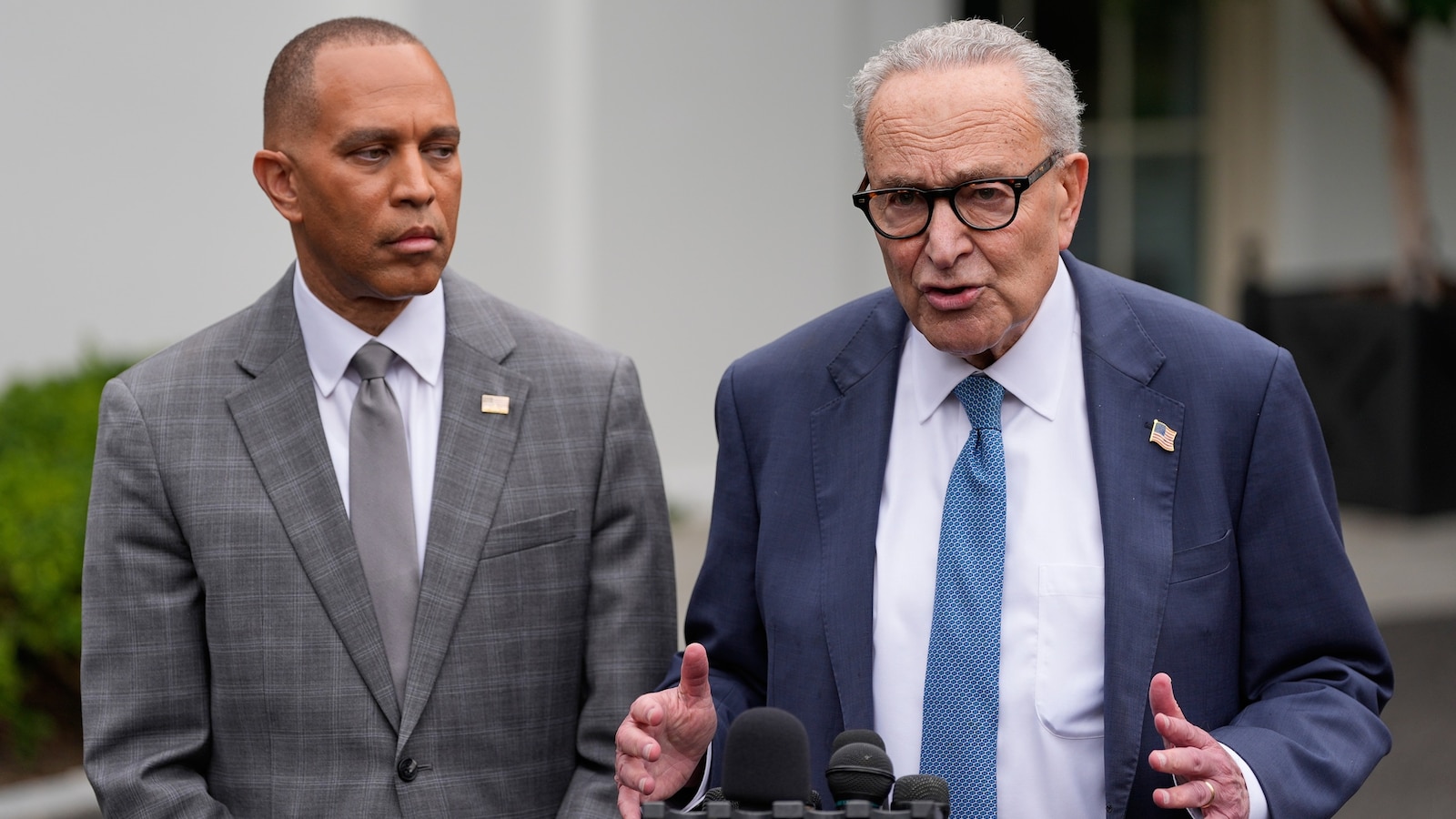Schumer and Democrats find themselves in new role as shutdown looms: Analysis
On the first day of the 2013 government shutdown, Sen. Chuck Schumer, D-New York, had a message for Republicans who refused to fund the government unless Congress defunded Obamacare: Hostage-taking would not work. “As we said a thousand times, we are happy to discuss how to fund the government, but not with a gun to…
On the first day of the 2013 government shutdown, Sen. Chuck Schumer, D-New York, had a message for Republicans who refused to fund the government unless Congress defunded Obamacare: Hostage-taking would not work.
“As we said a thousand times, we are happy to discuss how to fund the government, but not with a gun to our heads,” Schumer said on the Senate floor.
“You are not going to get us to give in to extortion,” he continued. “You are not going to take, as hostage, millions of innocent Americans and succeed in getting us to do something you want, and we don’t, and they don’t.
That shutdown ended after 16 days and Republicans had little to show for it.

House Minority Leader Hakeem Jeffries and Senate Minority Leader Chuck Schumer talk to reporters outside the West Wing of the White House, Sept. 29, 2025, in Washington.
AP Photo/Alex Brandon
Twelve years later, Schumer and Democrats, now in the minority, are staring down another government shutdown — but one that might be of their own making.
In the Senate, Democrats are withholding support for a measure to keep the government funded at current levels unless Republicans extend subsidies that help some Americans pay for health care through the Affordable Care Act, which are set to expire at year’s end, among other demands.
It’s a page out of the playbook pioneered by the GOP and Sen. Ted Cruz, R-Texas, and used repeatedly since 2013.
But for the first time, Democrats are poised to oppose funding the government. Schumer and House Democratic Leader Hakeem Jeffries left a White House meeting with President Donald Trump and top GOP leaders without an agreement on the path forward.
“I think we’re headed to a shutdown because the Democrats won’t do the right thing,” Vice President JD Vance said on the White House driveway after the meeting.
When Congress averted a shutdown in March, Schumer and nine other Democrats voted with Republicans to extend funding until the end of the fiscal year.
At the time, he argued that a shutdown would empower the Trump administration and the Elon Musk-led Department of Government Efficiency to continue radically reshaping the federal government
“Under a shutdown, the Trump administration would have wide-ranging authority to deem whole agencies, programs and personnel nonessential, furloughing staff members with no promise they would ever be rehired,” Schumer wrote in the New York Times, explaining his vote.
Now, the Senate minority leader has reversed himself, but denying that the pivot is due to political pressure — instead arguing that the deal cut in the spring hasn’t stopped the Trump administration from pushing out federal workers.
“We’re hearing from the American people that they need help on health care,” Schumer said Sunday on “Meet the Press.” “As for these massive layoffs, guess what? Simple one sentence answer, they’re doing it anyway.”

Vice President JD Vance talks to reporters outside the White House, Sept. 29, 2025, in Washington, as Director of the Office of Management and Budget, Russell Vought, Speaker Mike Johnson and Senate Majority Leader John Thune listen.
Alex Brandon/AP
While the American public has sided with Democrats in past shutdowns, it has been in fights in which Republicans tried to extract policy changes.
After the shutdown over defunding Obamacare in 2013, 53% of respondents to an ABC News/Washington Post poll blamed Republicans for the shutdown, compared to 29% who blamed then-President Barack Obama, and 15% who blamed both sides equally.
After Trump led Republicans into a futile shutdown to extract border wall funding from the Democrat-led House in January 2018, 48% of respondents blamed the president and Republicans for the shutdown, compared to 28% who faulted Democrats, according to an ABC News/Washington Post poll.
With roles reversed, Democrats could be in line to get blamed for a new shutdown. And Republicans in charge of both chambers could force messaging votes that underscore Democrats’ opposition to funding the government and the services its provides.
But this may not be a typical funding fight, given the Trump administration’s threats to use the shutdown to fire even more federal workers, and ongoing efforts to block spending agreements already approved by Congress over policy disputes.
Many Democratic voters have also pushed their leaders to take on the Trump administration more forcefully, and a shutdown could be a venue for doing so, despite the potential impact on government services.
If Congress can’t reach a deal, and the government shuts down, it’s not clear how long an impasse will last. It’s also not clear how long voters will hold it against Washington leaders, more than a year away from the 2026 midterms.
But all eyes will be on congressional leaders who now find themselves in unexpected roles.

